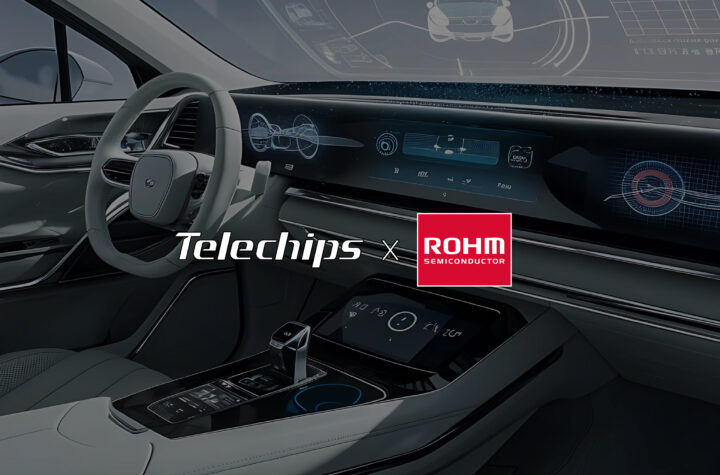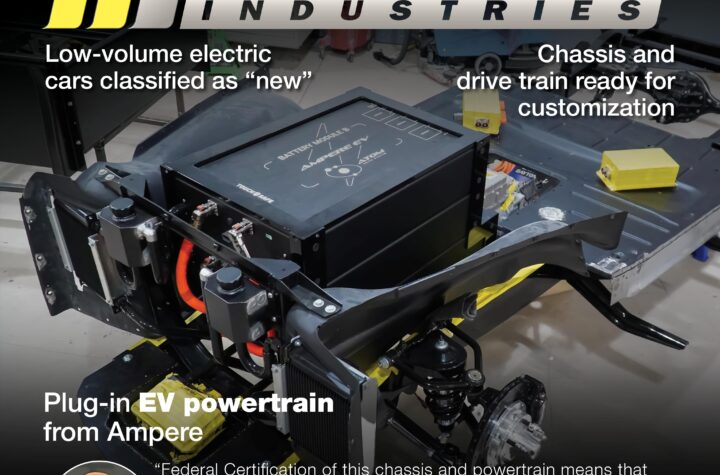
The first 3 electric vehicle charging posts have been switched on in Milton Keynes this month – a milestone in creating the UK’s most connected city for electric vehicles.
The posts, catering for up to 6 vehicles and offering electric vehicle drivers free charging as well as free parking, are the result of Milton Keynes’ participation in Plugged-In Places and support the Borough’s aim of placing 1,000 electric vehicles on its roads by 2014.
Their installation, co-ordinated by electric vehicle and infrastructure specialist Arup, breaks new ground in terms of post design and interoperability as project manager Tim Armitage explains:
“In Milton Keynes we have been able to deploy the latest technology and apply the sum total of knowledge gained about electric vehicle driving and charging habits to ensure the solutions applied here are both relevant and future-proof.
“This helps us avoid the penalties common to being the first to adopt any new or emerging technology. Typically, the speed at which technology advances can quickly render early solutions obsolete and it is hard to predict how popular or unpopular it will become.
“These posts are equipped with the latest generation technology and completely self contained. Removing the need for a secondary ‘feeder’ pillar not only enables them to be stylish and unobtrusive but also fully upgradeable in-situ without the need for costly, disruptive road works.”
Milton Keynes is ideally suited to electric vehicle use. Milton Keynes was established in 1967 as the last and most successful of the ‘new towns’ movement. It was deliberately sited equidistant from London, Birmingham, Oxford and Cambridge to be a regional hub, and has a distinctive grid layout of roads which allow flexible and free flowing traffic movement. Around 39,000 people commute into the Borough every day.
“Although current electric vehicles can travel only relatively short distances,” adds Armitage “we have ensured that Milton Keynes’ charging infrastructure is ‘interoperable’ (compatible) with the charging solutions in London, Oxford and Cambridge – making it the most connected place in the UK.”
This interoperability is made possible through Chargevision – an internet based electric vehicle charging management system operated by Bedford-based Chargemaster plc – which for an annual subscription of £50 affords users access to charge points in all four locations, though this number is expected to grow significantly as electric vehicle infrastructure spreads throughout the UK.
Geoff Snelson, Director of Strategy for Milton Keynes Council, said: “Milton Keynes has always been a pioneer for green technologies and initiatives and we are proud to give local people the opportunity to be at the forefront of electric vehicle use. We see this as another positive step to becoming an internationally known showcase low carbon city.
Our interoperability with neighbouring cities places us at the heart of a unique network and will present residents with more travel choices.”
Milton Keynes Council and its partners will be working towards the provision of electric vehicle charging infrastructure at a variety of publicly accessible car parks, transport hubs and workplaces throughout the city. The remaining 22 charging posts being installed in Milton Keynes during year 1 of the scheme will be switched on over the next few weeks with 50 further posts installed over the next 2 years. An additional 650 private domestic and commercial parking points are also planned.
Visit the Chargemaster website www.chargemasterplc.com to check which are operational.
In 2010 Milton Keynes Council signed a definitive agreement with the Renault-Nissan Alliance under which Renault-Nissan Alliance agreed to place priority on requests for electric vehicles in the UK from Milton Keynes.
About Plugged in Places
The first Plugged-in Places announced by the government in February 2010 were London, Milton Keynes and the North East. Called Plugged-in Places, these areas were selected for their desire to introduce charging infrastructure in car parks, major supermarkets, leisure and retail centres, as well as on the street.
The Coalition Government has since set out its commitment to support the Plugged-In Places programme and offers match-funding to local consortia of businesses and public sector partners wishing to install a critical mass of electric vehicle recharging infrastructure in lead places across the UK.
About Arup
Arup is the creative force behind many of the world’s prominent building, infrastructure and industrial projects. We offer a broad range of professional services that combine to make a positive difference to our clients and the communities in which we work.
Arup is truly global. >From 90 offices in 35 countries 10000 planners, designers, engineers and consultants deliver work across the world with flair and enthusiasm.
Founded in 1946 with an enduring set of values, our unique trust ownership fosters a distinctive culture, an intellectual independence and encourages truly collaborative working.
This is reflected in everything Arup do, allowing it to contribute meaningful ideas, help shape agendas, and deliver results that frequently surpass the expectations of clients. Arup passionately strives to find a better way, to imagine and shape ideas and to deliver better solutions for a better world.
Milton Keynes
Milton Keynes’ goal is to become an international showcase for low carbon living. Milton Keynes Council and its partners have developed a sustainable approach to housing, education, energy, water and transport. Former firsts include the UK’s first solar powered house in 1972 and the UK’s first kerbside recycling collection in 1992. For more information visit: www.milton-keynes.gov.uk/mklowcarbonliving















More Stories
Southfield Classics utilizes Ampere EV engineering to become the first manufacturer to achieve Low Volume Vehicle Manufacturer Certification
Sika – where battery storage technology for EVs, wind and solar meet
Battery pack solutions from PPG